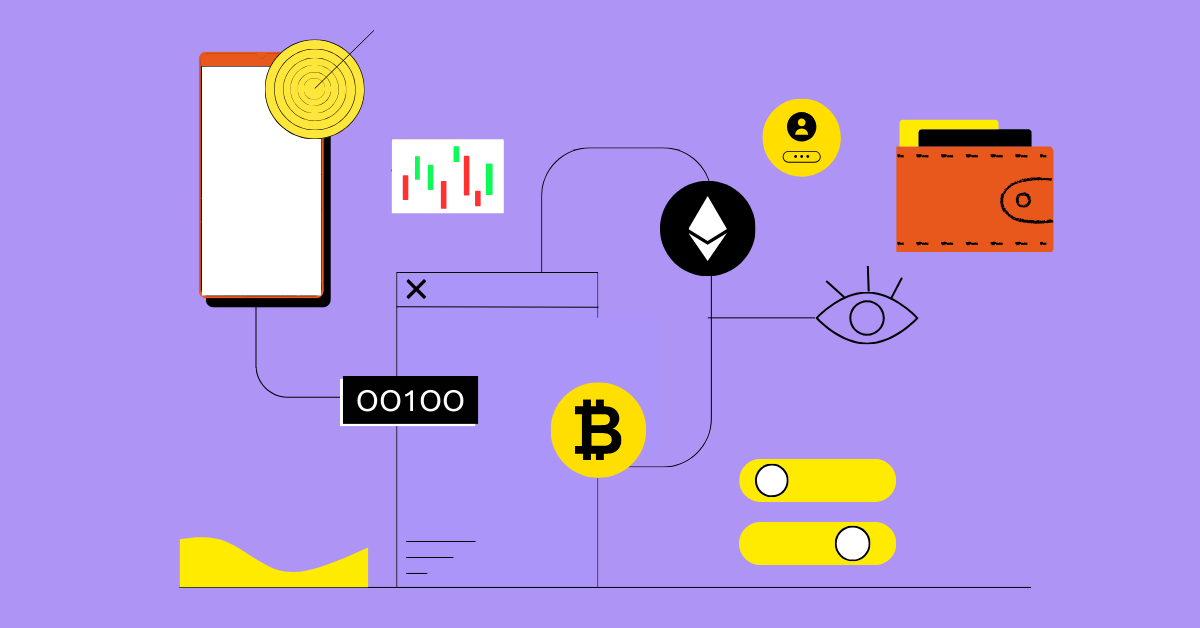
Crypto exchanges are online platforms where you can buy, sell, and trade cryptocurrencies. They play a vital role in the cryptocurrency ecosystem, providing liquidity and making it easy for people to access and use digital assets.
But with so many different crypto exchanges to choose from, how do you know which one is right for you? And how do you use them safely and effectively?
Crypto exchanges are the gateway to the future of finance. By understanding how they work and how to use them safely, you can position yourself to take advantage of the many opportunities that the cryptocurrency revolution has to offer.
Let’s dive in, shall we!?
1. Introduction to Cryptocurrency Exchanges
Cryptocurrency exchanges are the digital marketplaces where you can buy or sell digital currencies. It’s like shopping online for cryptocurrencies, using your regular money to buy or sell your existing digital assets to receive traditional currency in return. To participate in these exchanges, you typically need a digital wallet, which acts as your secure digital purse. These exchanges are designed for trading, and users can profit by buying low and selling high, just like in traditional stock markets.
However, choosing a trustworthy exchange is essential to safeguard your digital assets. Learn more about cryptocurrency exchanges below!
Read all about crypto exchanges here!
2. Why the Right Exchange Matters
Selecting the right cryptocurrency exchange is crucial for several reasons:
Prioritizing User Security
A reliable cryptocurrency exchange places user security as a top priority. They implement advanced security measures such as two-factor authentication (2FA), encryption, and cold storage of funds to protect against potential hacks. Well-known exchanges offer dependable services and promptly address any issues. They also adhere to regulatory standards and legal requirements in their operating jurisdiction.
Responsive Customer Support
The right exchange ensures a responsive customer support team that can assist with various concerns.
Token Compatibility
Choosing an exchange that supports the specific cryptocurrencies you want to trade is essential for seamless transactions.
Fee Considerations
Exchange fees can vary widely. It’s wise to choose an exchange with reasonable fees to cut costs and maximize your returns.
User-Friendly Interface
For beginners and experienced traders alike, a user-friendly exchange makes the trading journey smoother.
Stability and Insurance
A stable exchange is vital for uninterrupted trading and a flawless experience. Some exchanges even offer insurance coverage for digital assets, providing an extra layer of security.
2.1. Importance of Security
Cryptocurrency exchanges act as custodians of digital assets, making their security paramount. Hackers target the crypto space due to its decentralized nature, and a breach can result in significant losses. Robust security measures like Know Your Customer (KYC) verification are essential to prevent fraud and protect sensitive user data.
3. Points to Consider When Choosing an Exchange
When selecting a cryptocurrency exchange, keep the following factors in mind:
- Ensure that the exchange has security measures in place, such as two-factor authentication or 2FA, and encryption. Research about their security track record as well.
- Look for exchanges with a good reputation and reviews.
- Always choose the ones which comply with the regulations in the area of your jurisdiction.
- Compare the trading fees, withdrawal fees, and deposit fees across different exchanges.
- Ensure that the currency you wish to work with is supported by the exchange.
- The ones which require KYC verification are considered to be more secure and compliant with rules.
- Be aware of the withdrawal limits imposed by the exchange as they can impact the ability to access funds directly.
- Exchanges which provide educational resources could be useful for beginners.
4. Evaluating Exchange Security Features
Here is a list of some common security features which could be expected from a reputable exchange:
Reputable exchanges should offer the following common security features:
Two-Factor Authentication (2FA)
This adds layer of security by requiring a second form of verification.
Cold Storage
A portion of funds stored in offline cold wallets makes it challenging for hackers to access them.
Encryption
Encryption ensures secure data exchange and prevents interception by malicious entities.
Regular Security Audits
Reputable exchanges conduct frequent security audits to identify and rectify potential vulnerabilities in the system.
Whitelisting
Allowing users to whitelist specific wallet addresses ensures that only withdrawals to those addresses are permitted.
5. Factors of Transparency and Credibility
Look for these factors while choosing an exchange to work with:
- Publicly disclosed information: Renowned exchanges are very transparent about their operations by providing information about their team, location and legal status.
- Regulatory adherence: Credible exchanges stick to relevant regulatory requirements under the jurisdiction of the locality. They include KYC (Know Your Customer) verification and AML (anti-money laundering) procedures.
- Audit reports: Authentic exchanges publish third-party security and financial audit reports regularly to provide insights into the exchange’s financial health and security features.
- Asset listings: Exchanges disclose the asset policies to clear the criteria for listing new currencies to earn credibility.
- Terms of service: Exchanges should have clearly stated and accessible terms of service highlighting the user’s rights and responsibilities.
- User reviews: Consider the reviews by the users to get informed about the exchange’s credibility and user experiences.
6. Identifying Scams
Identifying scams in the cryptocurrency space is crucial. Scams often promise unrealistic returns on investments, require users to pay exorbitant fees, and continually push for more investments. When users attempt to withdraw their funds, these fraudulent exchanges disappear.
To safeguard against such scams, it’s best to stick with established exchanges and wallets with a proven track record of user satisfaction and security. These trusted platforms have a longer history and are less likely to engage in fraudulent activities.
By keeping these factors in mind, you can make informed decisions and minimize the risk of falling victim to cryptocurrency scams.
7. Endnote
If you go through regular social media, you might come across sites which boast of cheaper Bitcoin. They might advertise currencies at 5% lower prices than their original market value. These platforms are often fake!
Getting the crypto back from a scam is very tricky as the transactions on blockchains are immutable. Therefore, it is advised to follow basic security regulations while choosing a platform to work with. Crypto exchanges are flourishing day by day, with a new one being onboarded every hour. One needs to keep an eye on fake spaces. It is always good to choose the exchanges which have been working for a long time and have a good list of reviews.
8. FAQs
While many exchanges have seen security breaches in the past, most of the renowned ones are generally considered safe. Look for credible and secure crypto exchanges while starting your crypto journey.
Key steps to secure the crypto exchanges are:
Authentication
Access control
KYC security
Wallet security
Deposits and withdrawals security
If an exchange promises a rate of return on an investment which seems very unrealistic or too good to be true, it is probably fake!
We'd Love to Hear Your Thoughts on This Article!
Was this writing helpful?
 Yes
Yes  No
No
Trust with CoinPedia:
CoinPedia has been delivering accurate and timely cryptocurrency and blockchain updates since 2017. All content is created by our expert panel of analysts and journalists, following strict Editorial Guidelines based on E-E-A-T (Experience, Expertise, Authoritativeness, Trustworthiness). Every article is fact-checked against reputable sources to ensure accuracy, transparency, and reliability. Our review policy guarantees unbiased evaluations when recommending exchanges, platforms, or tools. We strive to provide timely updates about everything crypto & blockchain, right from startups to industry majors.
Investment Disclaimer:
All opinions and insights shared represent the author's own views on current market conditions. Please do your own research before making investment decisions. Neither the writer nor the publication assumes responsibility for your financial choices.
Sponsored and Advertisements:
Sponsored content and affiliate links may appear on our site. Advertisements are marked clearly, and our editorial content remains entirely independent from our ad partners.




